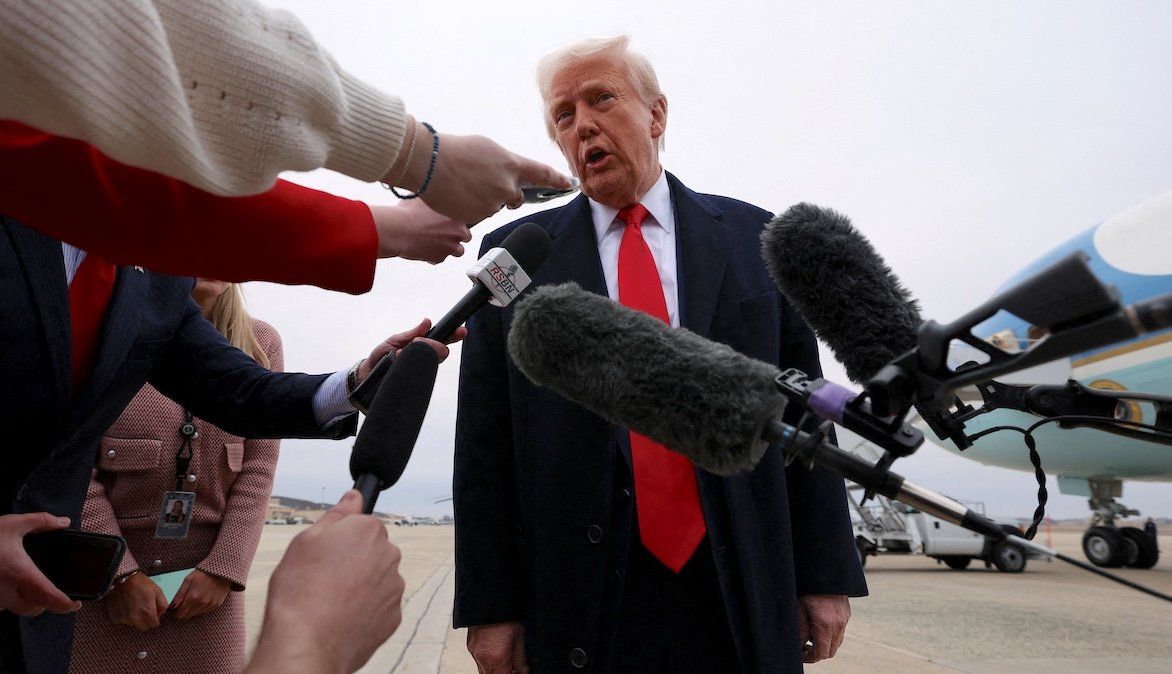The United States has always had a complexrelationshipwith its immigrants, dating back to 1798 when Congress passed the Alien and Sedition Acts, a set of laws that allowed the government to deport noncitizens during times of war and has only been used a few times. Some 227 years on, US President Donald Trump cited these same acts to expel Venezuelans that his administration believes are involved in gangs — without any hearing.
A judge on Saturday quickly pulled the plug on this move, temporarily blocking the White House from using the law to expel migrants and ordering it to turn around any planes containing detainees destined for South America.
“This is something you need to make sure is complied with immediately,” DC District Court Judge James E. Boasberg told the government after the American Civil Liberties Union argued that the executive move would allow the government to expel any Venezuelans from the United States.
White House responds defiantly: Despite a lack of evidence of the detainees’ connections to gangs, the Trump administration flew hundreds of Venezuelans to El Salvador on Saturday night — the planes had taken off before the ruling, reportedly landed in Honduras soon after, and then continued to El Salvador.
El Salvador’s President Nayib Bukele said Sunday that 238 members of the transnational Venezuelan gang Tren de Aragua and 23 members of MS-13, a Salvadoran gang, had arrived in El Salvador and were taken into custody. He posted a headline about the US judge’s ruling with a laughing emoji and the words “Oopsie … too late.”
The White House explained its actions. "A single judge in a single city cannot direct the movements of an aircraft ... full of foreign alien terrorists who were physically expelled from U.S. soil," White House press secretary Karoline Leavitt said in a statement, adding that federal courts have no jurisdiction over how a president conducts foreign affairs.
Judge Boasberg has scheduled another hearing for Friday to hear further arguments in this case.
Courting matters: This wasn’t the only hitch to Trump’s immigration plans. The White House emptied Guantánamo Bay of migrants last week, moving the last 40 to a military base in Louisiana amid a torrent of legal hurdles in a likely bid to preempt another restrictive court ruling. The former “Apprentice” star had planned to detain 30,000 migrants on the naval base in Cuba.
More For You
Walmart is investing $350 billion in US manufacturing. Over two-thirds of the products Walmart buys are made, grown, or assembled in America, like healthy dried fruit from The Ugly Co. The sustainable fruit is sourced directly from fourth-generation farmers in Farmersville, California, and delivered to your neighborhood Walmart shelves. Discover how Walmart's investment is supporting communities and fueling jobs across the nation.
Most Popular
President Trump’s second term has rapidly reshaped global politics, with the US wielding power more aggressively, targeting weaker countries and even allies, Stephen Walt explains on GZERO World.
Ian Bremmer breaks down a sudden and serious transatlantic crisis: President Trump’s insistence that the United States must have sovereignty over Greenland.
It’s been a year since President Trump returned to office. How has the world changed? Stephen Walt joins Ian Bremmer on GZERO World.
